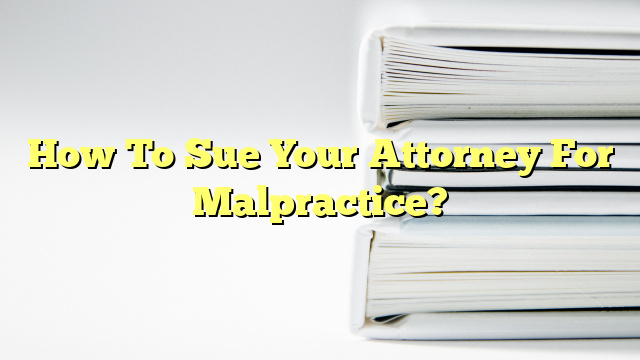Table of Contents
- Definition of Malpractice
- Common Causes of Attorney Malpractice
- How To Detect Malpractice
- Legal Actions You Can Take
- Preventing Malpractice From Occurring
Definition of Malpractice
Malpractice is any action by an attorney that deviates from the professional standard of care. This can include negligence, failing to address a client’s legal needs, failing to follow through on agreed-upon legal tasks, or any other action that fails to meet the standard of care expected from an attorney. Malpractice does not include intentional wrong-doing, such as fraud, theft, or other criminal acts.
Common Causes of Attorney Malpractice
The most common complaint against attorneys is breach of contract. This can mean that an attorney failed to complete the tasks they agreed to, failed to adhere to a deadline, or did not meet the expectations of the client. Other common complaints include negligence, where an attorney failed to use the skill and care expected of them; conflict of interest, where an attorney has taken on a client whose interests conflict with their own; and failure to communicate, where an attorney failed to keep their client informed.
How To Detect Malpractice
If you suspect that your attorney has committed malpractice, there are several steps you can take to determine whether this is the case. The first is to review your attorney’s file and records. This includes any correspondence between you and your attorney, as well as any documents that your attorney has sent you. If there is any evidence of negligence or breach of contract, this can be used as evidence. Additionally, you can speak to other attorneys or legal experts to get a better understanding of the standard of care expected from an attorney.
Legal Actions You Can Take
If it is determined that your attorney has committed malpractice, there are several legal actions you can take. You can file a complaint with your state’s bar association or disciplinary board. This will initiate an investigation into your attorney’s conduct. Additionally, you may be able to file a lawsuit against your attorney, depending on the nature of their malpractice.
Preventing Malpractice From Occurring
The best way to prevent malpractice from occurring is to be aware of your rights as a client. Be sure to thoroughly review your attorney’s contract and any correspondence between you and your attorney. Additionally, make sure that you are aware of the legal tasks that your attorney is responsible for, and be sure to ask for regular updates. Finally, be sure to hire an experienced and reputable attorney who is familiar with the laws in your jurisdiction.


Taking legal action against an attorney is possible if they’ve acted negligently or failed in their duties.
It’s important to know your rights, but caution must be exercised when considering suing an attorney for malpractice. There are risks and rewards, but it’s not always the right decision.